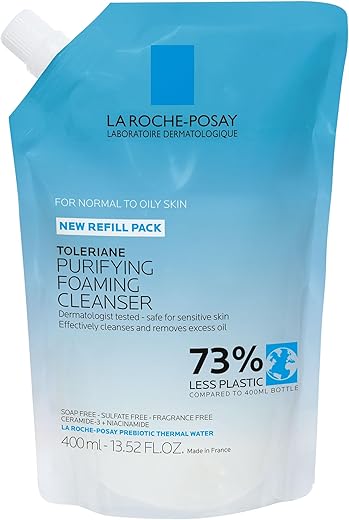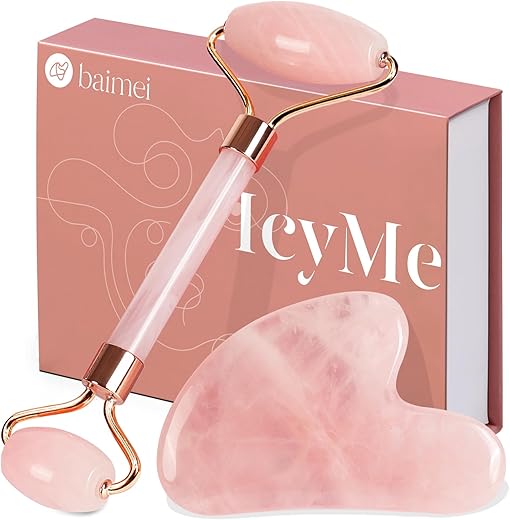
The Ultimate Guide to Choosing the Right Face SPF
Are you tired of spending hours scrolling through countless skincare products, feeling overwhelmed and confused? We understand the struggle of finding the perfect face SPF that not only protects your skin but also suits your unique needs. That’s why we’ve created “The Ultimate Guide to Choosing the Right Face SPF” – a comprehensive resource to help you navigate the world of sunscreens and make an informed decision. In this post, we’ll delve into the importance of face SPF, debunk common misconceptions, and provide expert tips to help you find the perfect sunscreen that will keep your skin healthy and radiant. So, let’s dive in and find the face SPF that’s just right for you!
Top-rated Face SPF Products






Understanding the Importance of Face SPF
As summer approaches, it’s time to start thinking about protecting our skin from the sun’s harmful UV rays. While many of us are aware of the importance of using sunscreen, not all sunscreens are created equal. In particular, using SPF specifically designed for the face is crucial for protecting our delicate facial skin. In this blog post, we will discuss why using face SPF is important and the differences between face SPF and regular body sunscreen.



Why is Face SPF important?
Our facial skin is more sensitive and vulnerable to damage from the sun compared to the rest of our body. Here are some reasons why using face SPF is crucial:
1. Higher risk of sunburn and skin damage
The skin on our face is more exposed to the sun’s rays, making it more susceptible to sunburn and skin damage. The delicate facial skin is thinner and contains fewer oil glands, making it more prone to dryness, premature aging, and skin cancer. Face SPF provides a protective barrier that shields our skin from harmful UV rays.
2. Prevention of premature aging
Exposure to the sun’s UV rays is one of the primary causes of premature aging, including wrinkles, fine lines, and age spots. By using face SPF regularly, we can slow down the aging process and maintain a youthful appearance.
3. Protection against skin cancer
Skin cancer is a serious concern, and protecting our face from harmful UV rays is essential in preventing its development. Face SPF with broad-spectrum protection shields our skin from both UVA and UVB rays, reducing the risk of skin cancer.
How is face SPF different from regular body sunscreen?
While body sunscreen can provide some level of protection, using face SPF specifically designed for the delicate facial skin offers several advantages. Let’s take a closer look at the differences:
1. Lighter and non-greasy formulas
Face SPF is formulated to be lighter and less greasy compared to regular body sunscreen. This is important because heavy or greasy sunscreens can clog pores, leading to breakouts and acne. The lighter formula of face SPF ensures comfortable wear and does not interfere with makeup application.
2. Higher SPF levels
Face SPF often comes with higher SPF levels than regular body sunscreen. Since our facial skin is more prone to damage, it requires extra protection. Higher SPF levels provide increased defense against harmful UV rays and reduce the risk of sunburn and skin damage.
3. Added skincare benefits
Many face SPF products also offer additional skincare benefits, such as hydration, antioxidant protection, and anti-aging properties. These added ingredients nourish and protect our skin, improving its overall health and appearance.
Key Points:
To summarize the importance of face SPF and its differences from regular body sunscreen, here are key points to remember:
- Face SPF is crucial for protecting the delicate facial skin from sunburn, premature aging, and skin cancer.
- Facial skin is more sensitive and vulnerable to sun damage, requiring extra care and protection.
- Face SPF is lighter, non-greasy, and suitable for comfortable wear under makeup.
- Higher SPF levels in face SPF provide increased defense against harmful UV rays.
- Many face SPF products offer added skincare benefits, nourishing and protecting the skin.
By understanding the significance of face SPF and choosing a product specifically designed for our facial skin, we can ensure optimal protection against the sun’s harmful UV rays. So, let’s prioritize our skin’s health and make face SPF an essential part of our daily skincare routine.
Factors to Consider When Choosing Face SPF
Choosing the right face SPF (Sun Protection Factor) is crucial for maintaining healthy and protected skin. With so many options available in the market, it can be overwhelming to find the perfect sunscreen for your face. In this blog post, we will discuss the key factors to consider when selecting the right face SPF, ensuring that you make an informed decision and provide your skin with the best protection possible.



Sun Protection Factor (SPF) Level
The first and most important factor to consider when choosing face SPF is the Sun Protection Factor (SPF) level. The SPF number indicates the level of protection against UVB rays, which are the primary cause of sunburn. The higher the SPF number, the greater the protection.
- SPF 15: Provides moderate protection against UVB rays and is suitable for everyday activities with minimal sun exposure.
- SPF 30: Offers high protection against UVB rays and is recommended for daily use, especially for individuals with fair or light skin tones.
- SPF 50: Provides the highest level of protection against UVB rays and is ideal for outdoor activities or prolonged sun exposure.
It is important to note that SPF only indicates protection against UVB rays and not UVA rays, which are responsible for long-term skin damage. Therefore, it is essential to choose a sunscreen that also offers broad-spectrum protection.
Broad-Spectrum Protection
Broad-spectrum protection is a crucial aspect of any face SPF. It ensures that your skin is shielded from both UVB and UVA rays. UVA rays penetrate deeper into the skin and are responsible for premature aging, wrinkles, and sunspots. Therefore, it is crucial to choose a sunscreen that specifically mentions broad-spectrum protection on the label.
Skin Type Compatibility
Different skin types have varying needs when it comes to sun protection. Consider the following factors based on your skin type:
- Oily Skin: Look for oil-free or lightweight formulas that won’t clog pores or cause breakouts.
- Dry Skin: Opt for moisturizing sunscreens that provide hydration and prevent further moisture loss.
- Sensitive Skin: Choose a sunscreen labeled as “hypoallergenic” or “sensitive skin” to minimize the risk of irritation.
- Acne-Prone Skin: Seek non-comedogenic sunscreens that won’t exacerbate acne or cause blackheads.
Additional Skincare Benefits
Many face SPFs offer additional skincare benefits to enhance your skincare routine. Consider the following features when choosing your sunscreen:
- Hydration: Look for sunscreens infused with ingredients like hyaluronic acid or glycerin to provide an extra boost of hydration.
- Antioxidants: Sunscreens with antioxidants, such as vitamin C or green tea extract, help protect the skin against free radicals and environmental damage.
- Matte Finish: If you prefer a shine-free look, opt for a sunscreen with a matte finish that controls excess oil throughout the day.
- Tinted Sunscreens: Tinted sunscreens offer the benefit of light coverage, acting as a multi-purpose product for sun protection and evening out skin tone.
Types of Face SPF Formulas
When it comes to protecting your skin from the harmful effects of the sun, using a face SPF formula is essential. However, with so many different options available, it can be overwhelming to choose the right one for your specific needs. In this blog section, we will explore the various types of face SPF formulas, including creams, lotions, gels, and powders, discussing their pros and cons, and how they cater to different skin types and preferences.



1. Creams
Pros:
- Creams offer excellent moisturization, making them ideal for dry or dehydrated skin types.
- They tend to have a thicker consistency, providing a more substantial barrier against the sun’s rays.
- Creams often contain hydrating ingredients like oils and butters, which can help nourish and soften the skin.
Cons:
- Creams may feel heavy or greasy on the skin, making them less suitable for those with oily or acne-prone skin.
- They can take longer to absorb, leaving a slightly sticky or tacky residue on the skin’s surface.
- Some cream formulas may contain fragrance or potential irritants, which can be problematic for sensitive skin.
2. Lotions
Pros:
- Lotions have a lighter consistency compared to creams, making them suitable for a wide range of skin types.
- They are generally easier to spread and absorb quickly, leaving a more lightweight and non-greasy finish.
- Lotions often come in larger bottles, offering more product and value for money.
Cons:
- If you have extremely dry skin, lotions may not provide enough hydration and could leave your skin feeling tight or dry.
- Some lotions may contain alcohol or other drying ingredients, which can be irritating for sensitive or dry skin.
- The lightweight texture of lotions may require more frequent reapplication throughout the day.
3. Gels
Pros:
- Gels have a lightweight, water-based formula that absorbs quickly and leaves a weightless finish on the skin.
- They are ideal for oily or acne-prone skin types, as they are less likely to clog pores or contribute to breakouts.
- Gels often have a cooling sensation upon application, which can be refreshing, especially during hot summer months.
Cons:
- Gels may not provide sufficient hydration for those with dry or dehydrated skin, as they often have a more mattifying effect.
- Some gel formulas may contain alcohol or other drying ingredients, which can be too harsh for sensitive or dry skin.
- Gels may require more frequent reapplication, especially if you sweat or have prolonged sun exposure.
4. Powders
Pros:
- Powder SPF formulas offer a unique option for those who prefer a more lightweight and natural-looking finish.
- They are easy to apply and suitable for all skin types, including oily, acne-prone, and sensitive skin.
- Powders can be used throughout the day for quick touch-ups, without the need for reapplying a whole face of makeup.
Cons:
- Powders may not provide sufficient sun protection on their own and should be used in conjunction with other forms of SPF.
- Some powder formulas may contain ingredients like talc or silica, which can be drying or irritating for certain individuals.
- Powders may require frequent touch-ups, especially if you sweat or have prolonged sun exposure.
Tips for Applying and Reapplying Face SPF
Protecting your skin from the harmful effects of the sun is crucial for maintaining a healthy and youthful complexion. While most of us are aware of the importance of using sunscreen, many people still struggle with properly applying and reapplying face SPF. In this blog post, we will provide practical tips on how to effectively protect your skin from the sun’s rays for maximum effectiveness.

The Right Amount Matters
Using the right amount of sunscreen is essential to ensure adequate coverage and protection. The general rule of thumb is to apply about a teaspoon (5ml) of sunscreen to your face. However, this amount may vary depending on the size of your face and the specific product you are using. Consider the following guidelines:
- Creams and lotions: Apply a dime-sized amount of product to each area of your face, including your forehead, cheeks, nose, and chin.
- Sprays: Spray an even layer of sunscreen over your entire face, making sure to cover all areas.
- Sticks: Rub the sunscreen stick directly onto your face, creating an even layer of coverage.
Proper Application Techniques
Applying sunscreen correctly is just as important as using the right amount. Follow these techniques to ensure maximum effectiveness:
- Cleanse your face: Start with a clean face to ensure that the sunscreen adheres properly.
- Apply before makeup: Apply sunscreen before applying any makeup products. This ensures that the sunscreen forms a protective layer on your skin.
- Even distribution: Spread the sunscreen evenly across your face, paying attention to areas that are more exposed to the sun, such as the nose, forehead, and cheeks.
- Don’t forget the neck and ears: Extend the application of sunscreen to your neck and ears, as these areas are often neglected but prone to sun damage.
Regular Reapplication is Key
Applying sunscreen once in the morning is not enough to provide adequate protection throughout the day. Regular reapplication is crucial for maintaining effective sun protection. Keep the following tips in mind:
- Time intervals: Reapply sunscreen every two hours, or more frequently if you are sweating excessively or swimming.
- Sun exposure: Reapply sunscreen immediately after sweating or towel-drying, as these activities can remove the protective layer of sunscreen.
- Layering over makeup: Use a powder sunscreen or sunscreen spray designed for reapplication over makeup to avoid disrupting your makeup.
- Don’t forget touch-ups: If you spend extended periods of time outdoors, consider using a sunscreen powder or spray for quick and convenient touch-ups.
The Benefits of Proper SPF Application and Reapplication
Properly applying and reapplying face SPF offers numerous benefits for your skin:
- Protection against UV damage: Sunscreen shields your skin from harmful UV rays, reducing the risk of sunburn, premature aging, and skin cancer.
- Maintains an even complexion: Regular use of SPF helps prevent the development of dark spots, hyperpigmentation, and uneven skin tone caused by sun exposure.
- Preserves skin’s elasticity: UV rays can cause collagen breakdown, leading to sagging skin and wrinkles. Using SPF regularly helps maintain your skin’s elasticity and firmness.
- Prevents photoaging: Sun damage is one of the primary causes of premature aging. By protecting your skin with SPF, you can keep it looking youthful and radiant.
Remember, incorporating proper application and regular reapplication of face SPF into your skincare routine is essential for keeping your skin healthy and protected. By following these tips, you can enjoy the benefits of effective sun protection and maintain a youthful complexion for years to come.
Now go out and enjoy the sun, but don’t forget your sunscreen!
Final thoughts on selecting the perfect SPF for your face
In conclusion, selecting the right face SPF is crucial for protecting our skin from the harmful effects of the sun. We have learned that considering the SPF level, broad-spectrum protection, skin compatibility, and personal preferences are key factors in making this choice. Remember to consult with a dermatologist for personalized recommendations tailored to your specific needs. By taking the time to choose the right face SPF, we can ensure our skin stays healthy and radiant for years to come.

Hey, I’m Ava Wilson—a skincare enthusiast and a certified esthetician. I’m dedicated to sharing my knowledge and empowering others to achieve healthy, glowing skin through simple, effective routines and natural remedies. Join me on this exciting skincare journey, and let’s unlock your skin’s potential for a confident, beautiful you.





